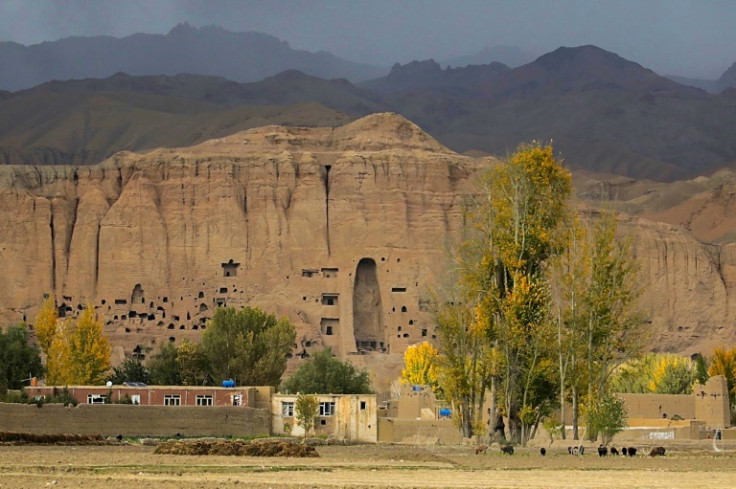
When she first heard the gunshots, French tourist Anne-France Brill thought for a split second there was a celebration in the Afghan market where she and her fellow travellers stopped to buy fruit.
But then she heard one of her companions screaming: "I realised she had blood all over her stomach."
The 55-year-old had been sitting in a van during a group tour in the mountainous city of Bamiyan on Friday evening when a gunman approached their vehicles and opened fire.
Brill was unhurt, but the Lithuanian woman next to her was hit.
"She had gone completely white," Brill said. "She was saying, 'I'm cold, I'm cold... I'm going to die'."
The spray of gunfire only lasted seconds, Brill recalled, followed by long minutes of uncertainty crouching on the floor of the van, wondering what had happened, if it was over, what to do.
"There was blood everywhere," Brill told AFP on the phone.
A Norwegian man in the van had also been wounded, and their driver had been killed.
He was one of six gunned down: three Spanish tourists, two Afghan men working with the group and a Taliban security official who returned fire on the gunman.
Suddenly, Taliban authorities swarmed the street, cordoning off and clearing the road.
As they approached the car where Brill and the others were, they still weren't sure if they were safe.
"But we didn't have a choice (but to get out) as we had wounded" in the van.
The wounded were bundled into the back of Taliban authorities' trucks and rushed to the hospital in Bamiyan, and later to Kabul, around 180 kilometres (110 miles) away.
Brill said her and other tourists who escaped unhurt were given a security escort overnight to Kabul, where they were taken in by a European Union delegation.
Before leaving Bamiyan, she helped gather the belongings of those killed and wounded, including from the site of the attack.
"They were covered in blood, but it's so important for the families, so we tried to recover what we could," she said.
One item stuck out, the backpack of a young woman.
The bodies of three Spanish victims were due to be returned to Spain on Sunday and the wounded to be transferred out of Kabul, diplomats said.
Brill and two Americans took early flights out of Kabul to Dubai, the shock taking its different tolls on the group.
"I cried my eyes out in front of the conveyor belt in Dubai, my suitcase was spinning, and all of a sudden, boom," she said.
"I had to let go and say to myself, 'That's it, now I'm safe'," she said, speaking from Dubai.
An avid traveller drawn to places off the beaten path Brill had long thought of visiting Afghanistan, one of the scores of foreign tourists drawn to experience the country's rich landscapes, history and culture long rendered virtually unreachable by decades of war.
More than two years after the Taliban ended their insurgency, ousting the Western-backed government, "it seemed possible", said Brill, who lives just outside Paris but whose career in marketing took her all over the world.
Used to travelling independently, she still opted for a tour group -- conscious of the remaining challenges of travelling in Afghanistan, a country with poor infrastructure, dilapidated health services, tight Taliban government controls, little diplomatic presence and lingering security threats.
The attack on Brill's group was the first reported deadly assault on foreign tourists in Afghanistan since the return of the Taliban to power in 2021, the authorities encouraging travellers and a fledgling tourism sector.
The group had arrived in Kabul on Wednesday, Bamiyan their first stop outside the Afghan capital to see the famed remnants of the 1,500-year-old giant Buddhas destroyed in 2001 by the Taliban during their first rule.
She and her companions had been just getting to know each other, trading tips over WhatsApp before arriving, then sharing their first Afghan meals as they looked forward to stops in the cities of Herat and Kandahar.
But instead of bonding through their travels, the group is now tied together over haunting memories, their WhatsApp messages sharing word of their wounded companions.
"An experience like that, when something like that happens to you, it creates bonds," she said.







